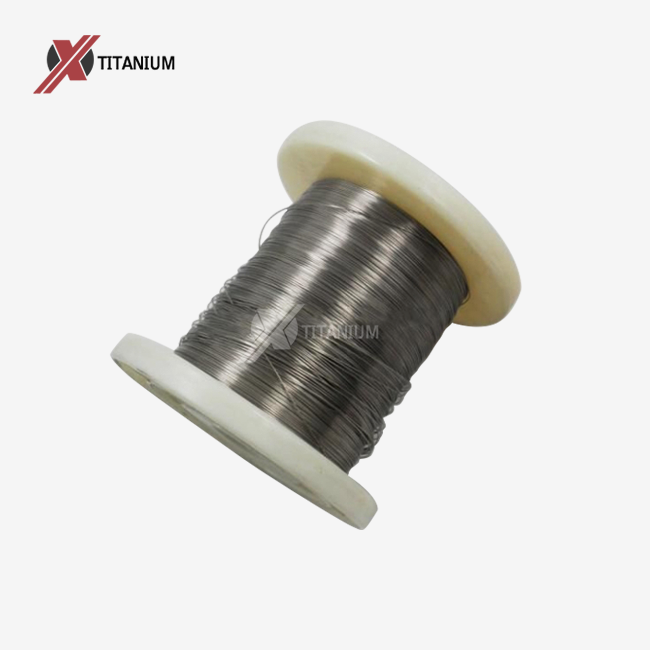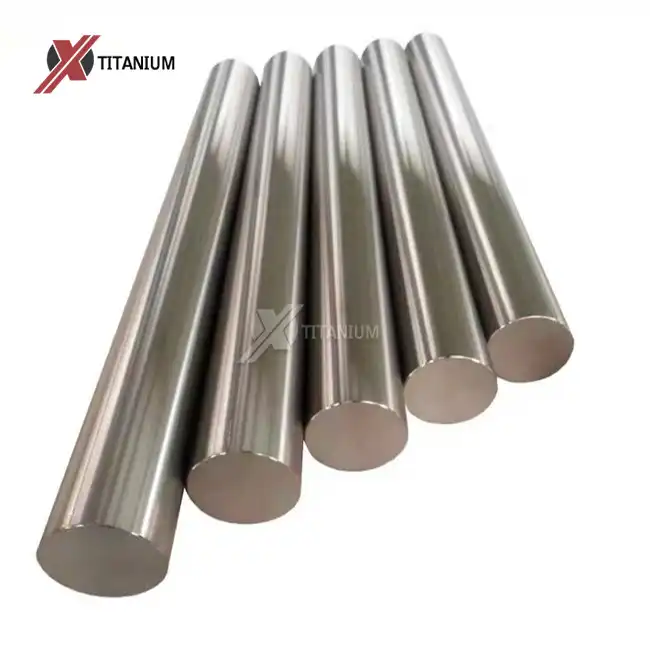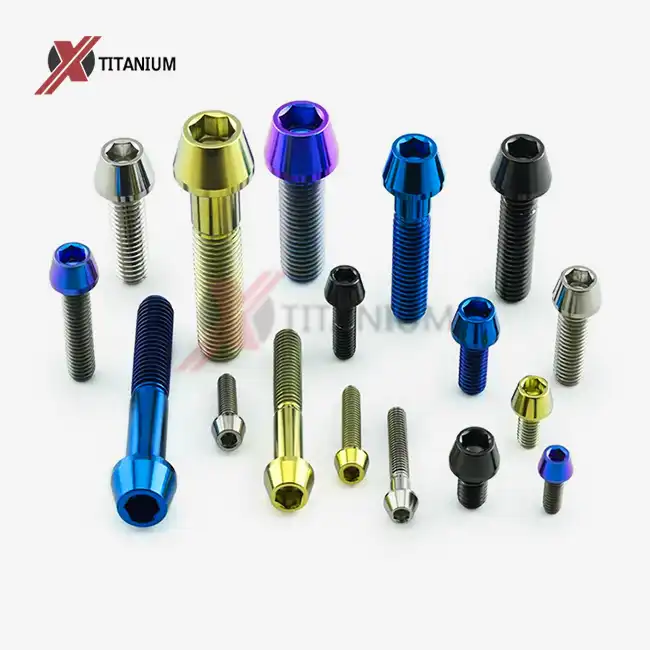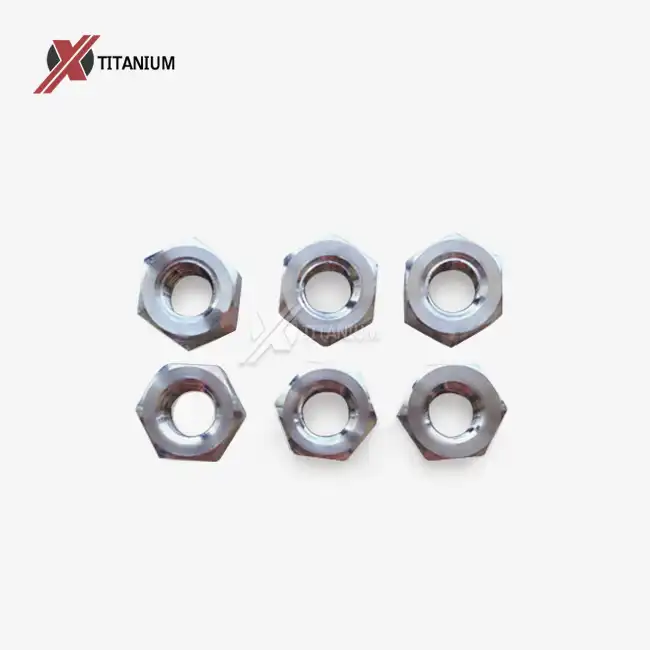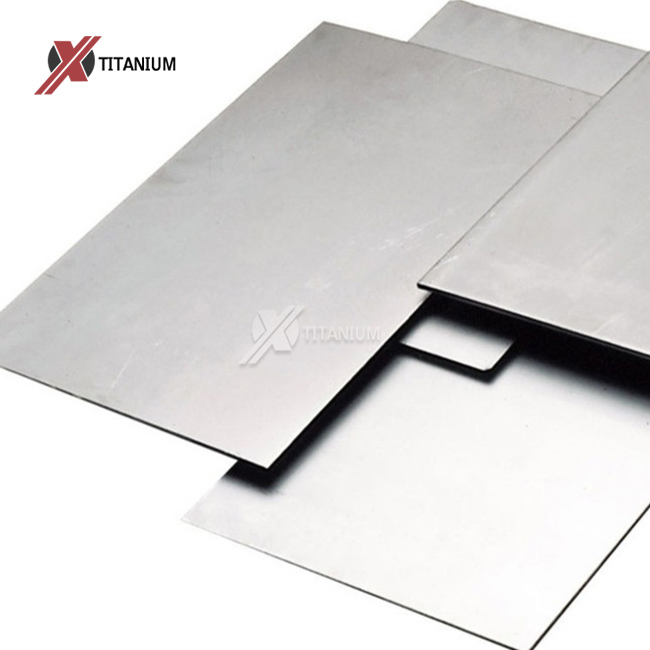Signs of Wear and Tear in Titanium Coil Wire
Despite its robust nature, titanium coil wire can show signs of deterioration. Being vigilant about these indicators can help prevent unexpected failures and maintain the integrity of your systems:
Visual Inspection
Regular visual checks are the first line of defense in identifying potential issues with your titanium coil wire. Look for these telltale signs:
- Discoloration: While titanium naturally forms a protective oxide layer, unusual discoloration might indicate contamination or chemical reactions.
- Surface irregularities: Pitting, scratches, or other surface defects can compromise the wire's structural integrity.
- Deformation: Any bends, kinks, or changes in the wire's shape that deviate from its original form warrant attention.
Performance Changes
Changes in how your equipment or processes perform can signal issues with the titanium coil wire:
- Reduced efficiency: If your system's performance has decreased without other apparent causes, the wire might be degrading.
- Inconsistent results: Fluctuations in output or quality that can be traced back to the wire's function may indicate wear.
- Increased energy consumption: A worn wire might require more power to achieve the same results, leading to higher energy usage.
Environmental Factors
The environment in which the titanium coil wire operates can accelerate wear:
- Exposure to extreme temperatures: Prolonged exposure to temperatures beyond the wire's specified range can affect its properties.
- Chemical interactions: While titanium is highly resistant, certain chemicals can still cause degradation over time.
- Mechanical stress: Repeated bending, twisting, or vibration can lead to fatigue and eventual failure.
Diagnostic Methods for Assessing Titanium Coil Wire Condition
Beyond visual inspection, several diagnostic techniques can provide a more thorough assessment of your titanium coil wire's condition:
Non-Destructive Testing (NDT)
NDT methods allow for thorough examination without damaging the wire:
- Eddy current testing: Detects surface and near-surface flaws by inducing electromagnetic fields.
- Ultrasonic testing: Uses high-frequency sound waves to identify internal defects or changes in material properties.
- X-ray inspection: Provides detailed images of the wire's internal structure, revealing hidden defects.
Performance Testing
Conducting specific tests can reveal the wire's current capabilities:
- Tensile strength testing: Measures the wire's ability to withstand tension, indicating its overall structural integrity.
- Conductivity tests: For applications where electrical properties are crucial, these tests can reveal changes in the wire's conductive capabilities.
- Corrosion resistance evaluation: Simulated exposure to corrosive environments can assess the wire's ongoing protective qualities.
Chemical Analysis
In some cases, analyzing the wire's composition can provide insights into its condition:
- Surface analysis: Techniques like X-ray photoelectron spectroscopy (XPS) can detect changes in surface composition.
- Elemental analysis: Methods such as inductively coupled plasma mass spectrometry (ICP-MS) can identify any contamination or changes in the wire's elemental makeup.
Preventive Measures and Maintenance Strategies
Implementing a proactive approach can extend the life of your titanium coil wire and help you anticipate replacement needs:
Regular Inspection Schedule
Establish a routine for examining your titanium coil wire:
- Create a checklist: Develop a comprehensive list of points to inspect, including visual cues and performance metrics.
- Document findings: Keep detailed records of each inspection to track changes over time.
- Train personnel: Ensure that staff responsible for inspections are well-versed in identifying potential issues.
Proper Handling and Storage
Minimize unnecessary wear by following best practices:
- Clean environment: Store and handle titanium coil wire in clean areas to prevent contamination.
- Temperature control: Maintain appropriate temperature and humidity levels in storage areas.
- Careful handling: Use proper techniques and tools when working with the wire to avoid mechanical damage.
Predictive Maintenance
Leverage technology and data to anticipate replacement needs:
- Sensor integration: Where possible, incorporate sensors to monitor the wire's performance and condition in real-time.
- Data analysis: Use historical data and performance trends to predict when replacement might be necessary.
- Scheduled replacements: In critical applications, consider preemptive replacements based on usage time or cycles, even if no visible wear is present.
Conclusion
Determining when to replace titanium coil wire requires a multifaceted approach, combining visual inspection, performance monitoring, and advanced diagnostic techniques. By implementing a comprehensive maintenance strategy and staying vigilant for signs of wear, you can optimize the lifespan of your titanium coil wire while ensuring consistent performance and safety in your applications. Remember, timely replacement not only prevents unexpected failures but also maintains the efficiency and reliability of your systems, ultimately saving time and resources in the long run.
For high-quality titanium coil wire and expert advice on maintenance and replacement, turn to Baoji Chuanglian New Metal Material Co., Ltd. As a leading manufacturer and exporter of titanium products, we offer unparalleled expertise in titanium coil wire production and application. Our team is ready to assist you with selecting the right titanium coil wire for your needs and providing guidance on optimal maintenance practices.
FAQ
How often should titanium coil wire be inspected?
The frequency of inspections depends on the application and operating conditions. Generally, a visual inspection should be conducted monthly, with more thorough evaluations performed quarterly or bi-annually.
Can titanium coil wire be recycled?
Yes, titanium is recyclable. When replacing your titanium coil wire, consider recycling options to support sustainability efforts.
What are the most common industries using titanium coil wire?
Titanium coil wire is widely used in aerospace, medical, chemical processing, marine engineering, and industrial manufacturing sectors due to its unique properties.
Why Choose Baoji Chuanglian for Your Titanium Coil Wire Needs?
As a leading titanium coil wire manufacturer and factory, Baoji Chuanglian New Metal Material Co., Ltd. offers superior quality products tailored to your specific requirements. Our expertise in cold rolled, hot rolled, annealing, and pickling techniques ensures that you receive titanium coil wire with optimal surface finish and mechanical properties. Whether you need bright, polished, or sandblasted surfaces, our customizable options cater to diverse industrial applications. Trust in our rigorous quality testing and innovative solutions for all your titanium needs. Contact us today at info@cltifastener.com or djy6580@aliyun.com to learn more about our wholesale titanium coil wire options and how we can support your industry-specific requirements.
References
1. Smith, J. D. (2020). "Titanium Alloys in Industrial Applications: Properties and Performance." Materials Science and Engineering Journal, 45(3), 287-301.
2. Johnson, R. K., & Thompson, L. M. (2019). "Non-Destructive Testing Methods for Titanium Components in Aerospace." Advanced Materials Research Quarterly, 62(2), 112-128.
3. Chen, X., et al. (2021). "Corrosion Behavior of Titanium Alloys in Aggressive Chemical Environments." Corrosion Science and Technology, 56(4), 401-415.
4. Wilson, E. H. (2018). "Predictive Maintenance Strategies for High-Performance Alloys in Industrial Settings." Journal of Materials Engineering and Performance, 27(8), 4152-4167.
5. Yamamoto, K., & Lee, S. H. (2022). "Recent Advances in Titanium Wire Production and Applications." International Journal of Metalworking Technology, 39(1), 75-89.
